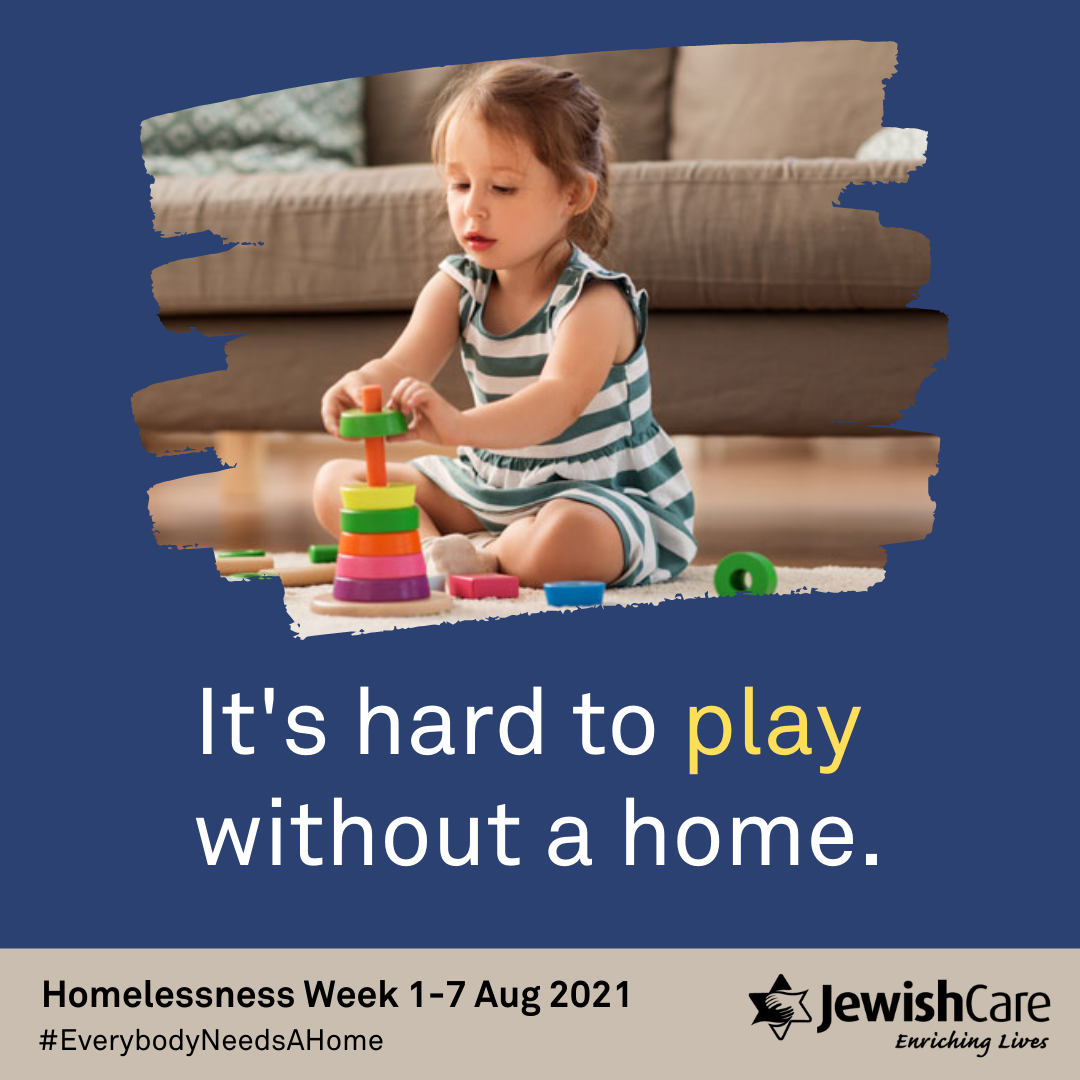30 July 2021
By Cassandra Barrett, Program Manager – Healthy Communities
August 1-7 marks National Homelessness Week. The theme of the 2021 campaign is Everybody needs a home.
Most of us have been spending a lot more time at home this past year, and in particular the last few weeks as we emerge from the latest round of lockdown measures. This can no doubt be frustrating; even claustrophobic: to be cooped up at home in isolation, tired of staring at the same four walls or refereeing children’s squabbles.
In moments like these, it is easy to forget that a home is a right not afforded to all.
Homelessness can take many forms. The most visible is street-based homelessness or rough sleeping – however this represents just a small part of the picture. It also includes more hidden forms of homelessness, such as living in temporary or unsuitable accommodation – couch surfing, emergency accommodation, or a car.
For the more than 116,000 Australians who are homeless on any given night, this is the unfortunate reality.
There are many contributing factors to homelessness: social disadvantage; financial hardship; unexpected life events like illness, job loss or the death of a loved one; family violence or separation; mental illness; substance use. But ultimately, at its core, homelessness is a systemic and structural issue, fuelled by the rising cost of living and insufficient social housing.
Put simply: Australia is in the grips of an affordable housing crisis, and the most vulnerable are paying the price.
Homelessness affects the whole community. It affects people of all ages and has a range of impacts across the lifespan, from birth to old age.

For babies to develop and grow, they need safety and security. (It’s hard to soothe a crying baby when rain is pounding on the roof of the car.)
For children to thrive, they need space to play and learn. (How can you do your homework when there’s no place to study?)
For teens to belong, they need a community. (It’s hard to build connections when you can’t invite a friend over.)
For young adults to start their grown-up lives, they need a stable base. (Try Zooming in to uni lessons when it’s lockdown and you can’t access public Wi-Fi - and how are you meant to jobseek when there’s no place to wash your clothes?)
For women to feel safe, they need a roof over their head. (Did you know that family violence is the single leading cause of homelessness for women and children, and women over 55 is the fastest growing homelessness cohort?)
For older people to age with dignity, they need suitable accommodation. (Imagine trying to pay Melbourne rent on the single aged pension - $434 a week doesn’t go far.)
For all of us, no matter our age or stage of life, we need to feel grounded and connected; to have a safe place to call our own. It’s not a privilege – it’s a right. Everybody needs a home.
Through our social housing properties and nomination rights with partner organisations, Jewish Care currently provides affordable housing to 145 community members, including 30 children, who would otherwise be at risk of homelessness.
Five ways to get involved during National Homelessness Week:
1. Build your knowledge
Challenge your perception of what homelessness looks like and who it affects. Learn more about the stats, read about the pandemic’s impact on rental stress and homelessness, or watch the excellent You Can’t Ask That.
2. Attend the launch of Homelessness Week 2021
Join the launch event on Monday 2 August to learn about the Nowhere To Go report on the benefits of long-term social housing for women affected by family violence.
3. Advocate
Your voice matters. Share content on your social media and start a conversation. Write to your local council or MP to advocate for increased investment to end homelessness.
4. Make a donation
Help support practical care and assistance for those experiencing homelessness.
5. Pledge your support for the Everybody’s Home campaign
If you think everybody should have a home, sign the petition to advocate for more social and affordable housing in Australia.